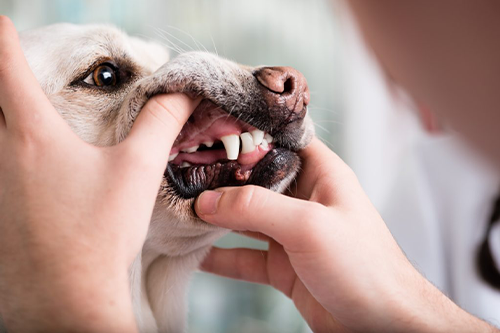
Dental & Oral Care
In our Modern dental suite, our staff, trained by a board certified veterinary dentist, provide proper cleaning, probing & charting, intraoral radiographs, nerve blocks, minor oral surgery and the latest tooth extraction techniques. All this is done to be certain your pet will benefit greatly from receiving proper dental care.
Huntley Veterinary Hospital’s
20 Steps to Your Pets Oral Assessment & Treatment Plan

Why Huntley Veterinary Hospital wants you to know the importance of good oral hygiene for your pet.
Periodontal disease is a progressive disorder affecting the teeth and gums, which is caused by the buildup of plaque and tartar on the tooth surface. The largest contributing factor to plaque development is the entrapment of food debris in the mouth. Feeding your pet dry food can help clean the teeth, but that alone is not enough to protect against dental disease. Without adequate care and attention, periodontal disease can result in discomfort, bad breath, irreversible damage to the gums, premature loss of teeth, and infections that can affect other organs in the body such as the heart, liver and kidneys.
1. General Physical Examination
Dr. Joe and his dog “Ellie”
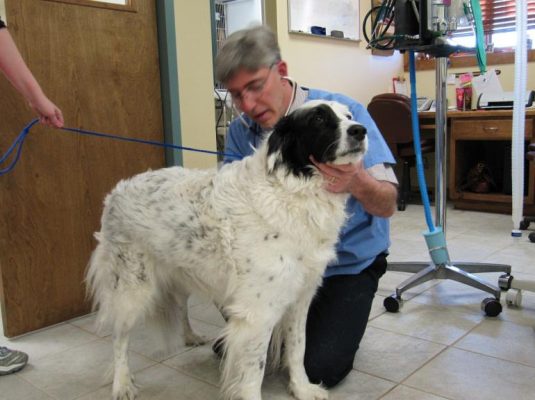
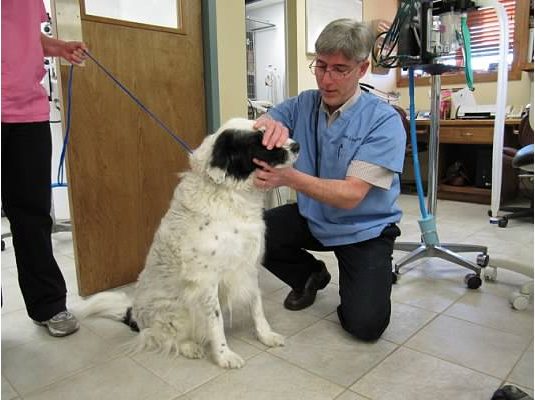
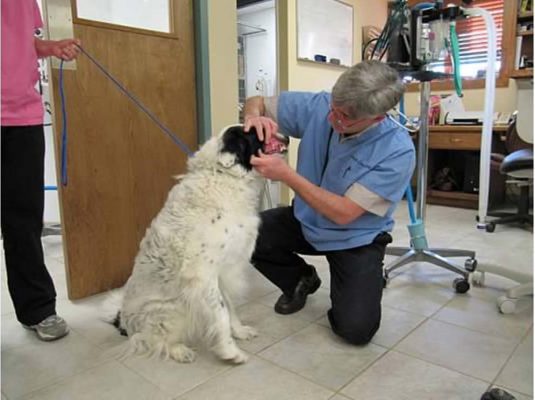
2. Pre-operative Blood Work
Most blood work can be done with our in-house laboratory, with results in as little as 15 minutes.
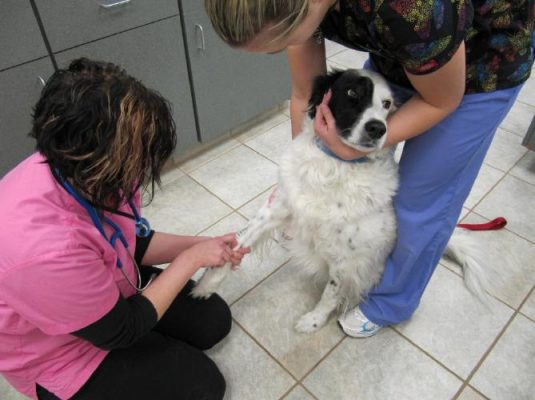
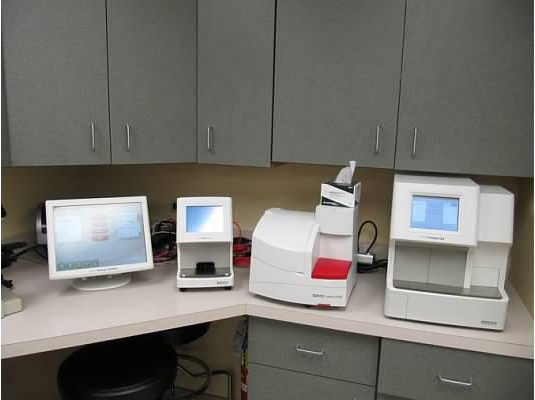
3. Pre-operative/Post-operative Antibiotics
- Normal healthy patients will be able to handle the transient bacteria created by scaling the teeth.
- Pre-procedure antibiotics are indicated in patients with severe periodontal disease, preexisting cardiac or renal disease, or immune compromised patients.
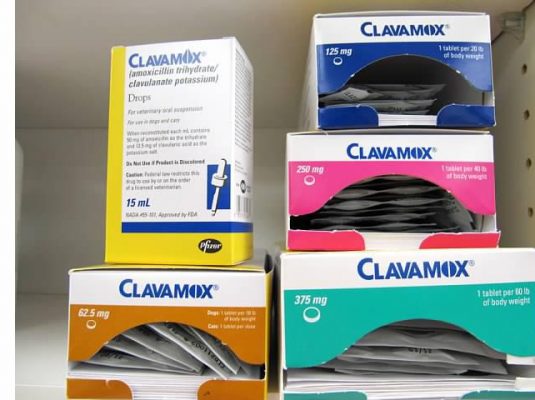
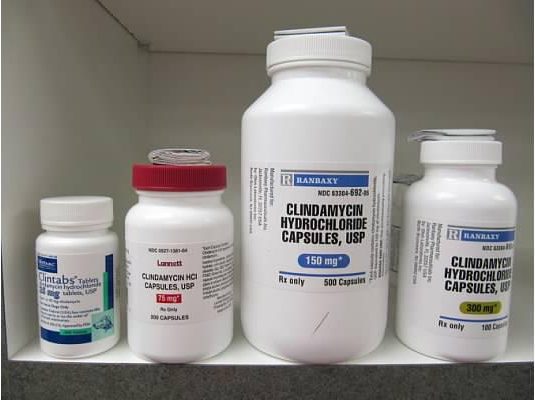
4. General Anesthesia
- With 5 Point monitoring
- “Hot Dog” Blanket warming system
- Ellie’s ready to have her teeth cleaned.



5. Intravenous Fluids
- Ellie’s IV placed
- Fluid warmer

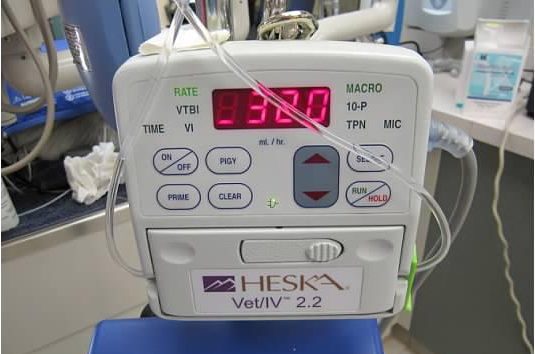

6. Oral Rinse with Chlorhexidine
- Decreases the bacterial load for the patient.
- Decreases bacterial exposure to the staff.
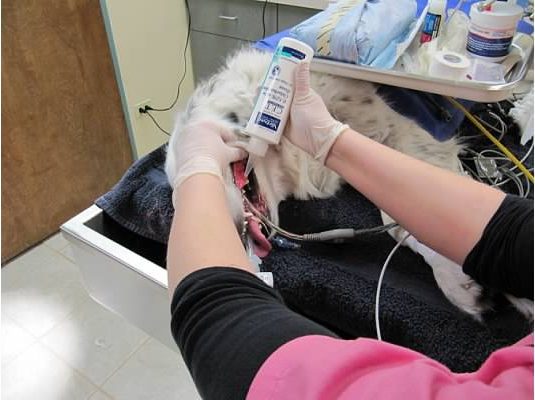
7. Removal of Plaque and Tartar Below the Gum Line on the Tooth Surface
- Most visible to the owner and least important to the patient.
- Hand scaling in an awake patient should NOT be done.

8. Removal of Plaque and Tartar Above the Gum Line
- Least visible to the owner and most important to remove.

9. Detection of Remaining Plaque and Tartar
- Technicians utilize the air syringe to check for missed plaque or tartar.

10. Polishing
- Required to remove irregularities created by scaling.

11. Irrigation
- Irrigation of the gingival sulcus to remove debris and bacteria.

12. Fluoride Application
- Contraindicated in patients with kidney disease.
- Hardens the enamel and desensitizes dentin.
- Decreases evidence of caries (tooth decay).

13. Probe and Explore
- Normal pocket depth in a dog is < 3 mm and < 1 mm in a cat

14. Complete Charting
- All visible abnormalities noted; missing teeth, fractures, enamel defects, oral masses, furcations, pocket depths, mobility, etc….

15. Dental Radiography
- All teeth with pathology should be radiographed for underlying disease above the gum line.
- 80% of dental anatomy is not visible to the eye.

16. Preemptive Pain Management or Nerve Blocks
- Given before a painful stimulus occurs, such as extracting a tooth.
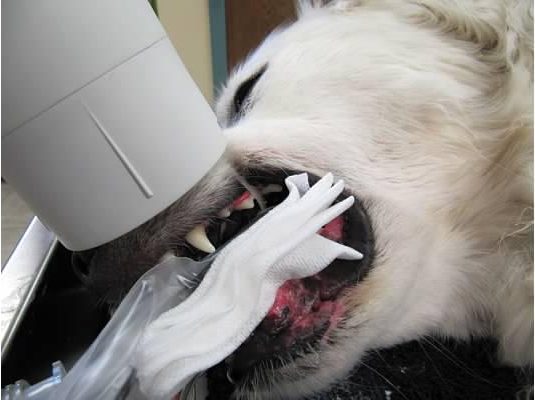

17. Treatment Plan
Based on the complete oral exam findings from probing and intra-oral radiographs, extractions may be performed as well as antibiotics and/or periodontal fillers.

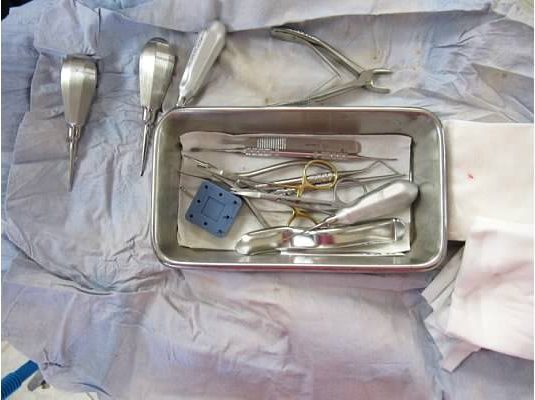
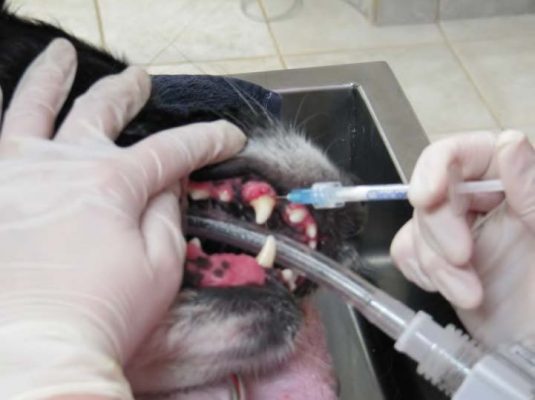
18. Anesthetic Recovery
Most patients are recovered and sitting up within 5- 10 minutes of being taken off the gas anesthesia. During this time they are closely monitored and heart rate is taken until they are sitting up.
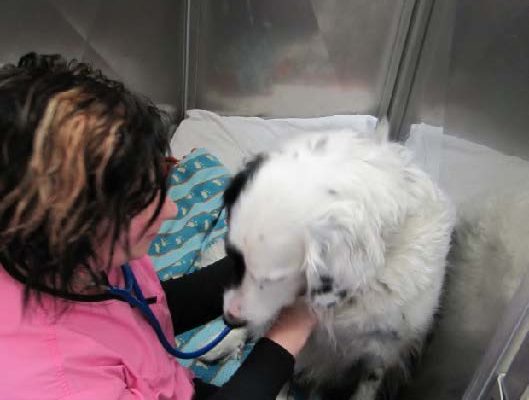
19. Home Care
- A home care plan is customized for each patient.
- All patients receive post dental recommendations for home care. Handouts are based on the extent of disease present and treated.
- All owners are advised to continue daily preventative home care for their pets.
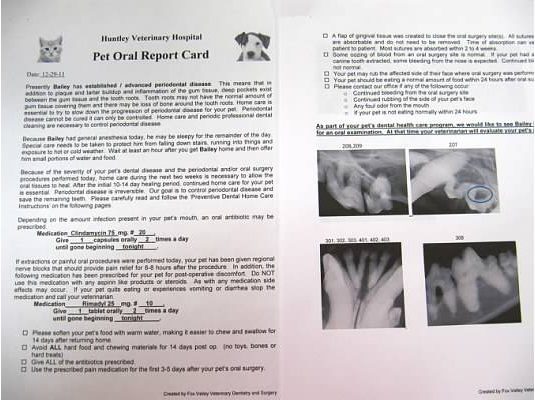
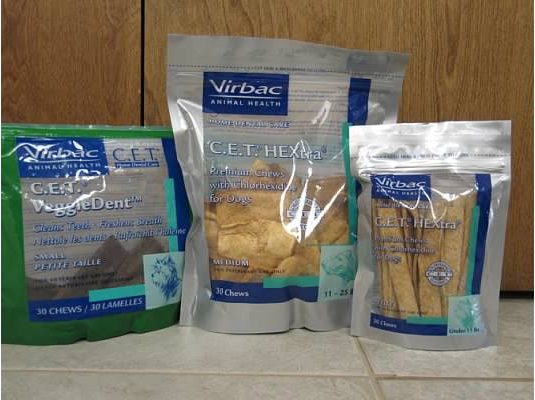
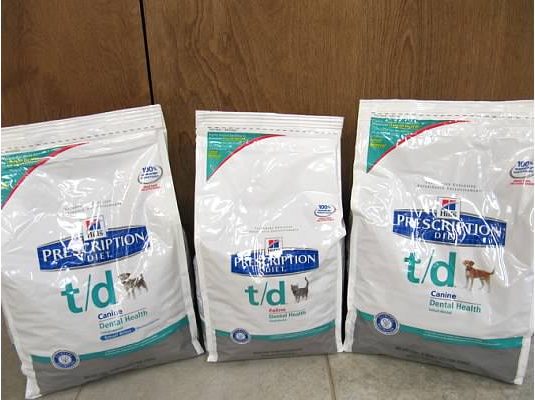
20. Recheck Exam
- Huntley Veterinary Hospital recommends a 2 week recheck exam to monitor the patient’s dental progress and to be sure that all areas are healing well.
- This Dental Recheck exam is FREE!!

